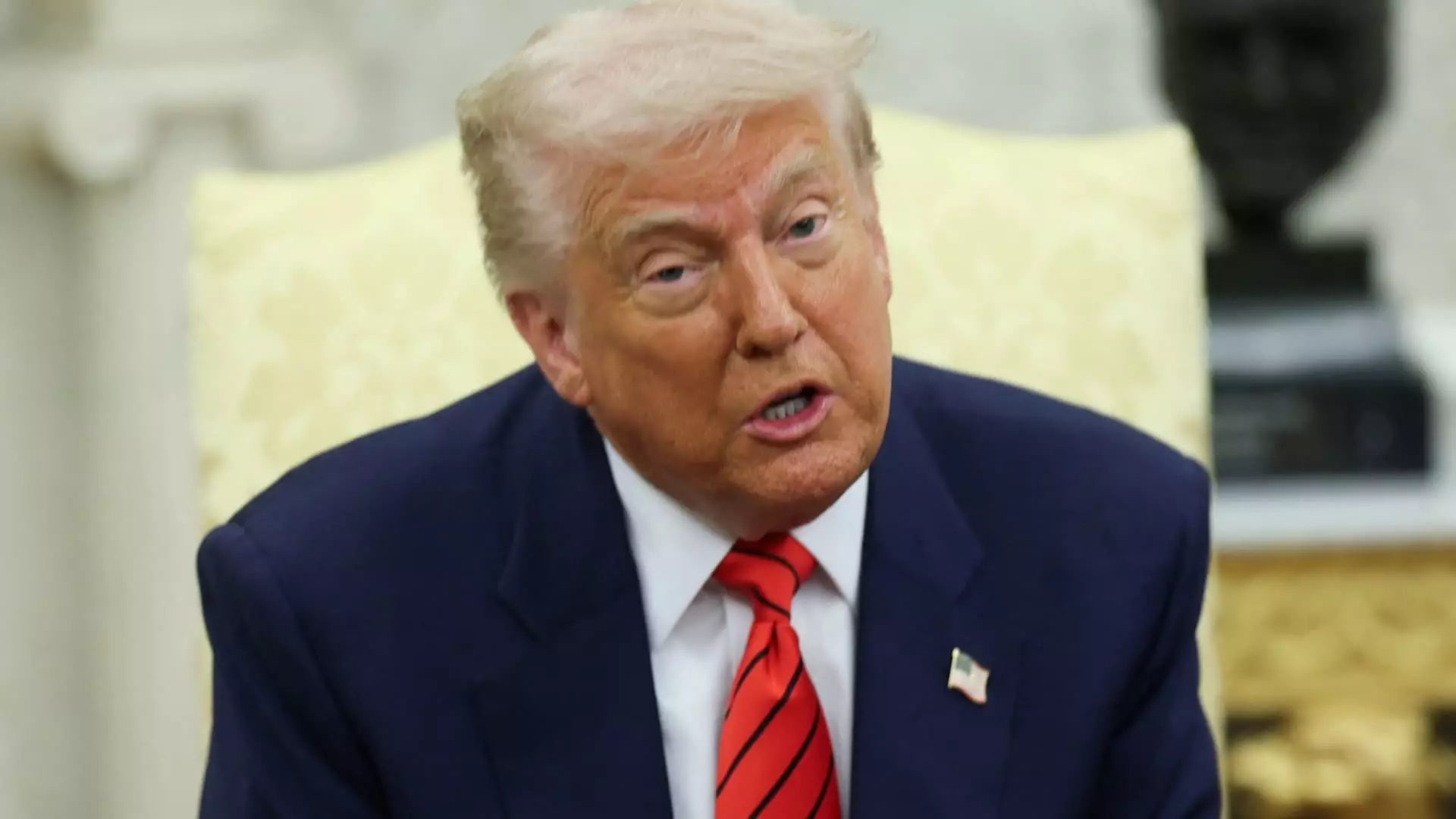In a world that’s increasingly interconnected, the art of negotiation holds unprecedented significance, especially when it comes to international trade. However, President Donald Trump’s recent remarks have unveiled a perplexing strategy that seems to flout conventional wisdom. When the leader of the free world mutters that the United States doesn’t necessarily need to “sign deals”, it raises eyebrows and, frankly, concern among economists and traders who understand the critical role these agreements play in fostering economic stability. Trade, as an age-old instrument of diplomacy, operates on the principle of reciprocity. But according to Trump, such agreements aren’t as vital as they once appeared to be, shifting the blame entirely onto the trading partners seeking to access the lucrative U.S. market.
Trump’s dismissal of the need for trade agreements isn’t merely an offhand comment; it’s a reflection of a deeper misunderstanding of global economic dynamics. His assertion that “they want a piece of our market” is a telling indication of a mindset that prioritizes a unilateral approach. This perspective undermines the intricacies of trade partnerships that have been meticulously crafted over decades. The president’s cavalier dismissal of necessary diplomacy only signals to potential partners that cooperation is secondary to an inflated sense of American superiority.
Trading Confusion: The Disconnect Between Rhetoric and Reality
It’s hard to ignore the palpable dissonance between Trump’s rhetoric and the practical realities experienced by businesses and investors. For weeks, top officials in his administration announced that trade deals were on the verge of being signed. Yet, the reality remains stark: potential agreements with countries like India, South Korea, and Japan remain fleeting promises rather than concrete outcomes. This game of “promise and delay” may work momentarily to placate the public and investors, but as the clock ticks, the absence of tangible results only fuels anxiety about an impending economic downturn worsened by tariffs, which Trump himself has perpetuated.
At a time when the market relies heavily on steady and reassuring signals, Trump’s comments during a White House meeting exposed his frustration with the demands for concrete results. He chastised aides for over-promising, but the onus ultimately rests on his shoulders. This anticipatory phase has extended longer than expected, and investments driven by hopes for forthcoming agreements have faltered, much to the chagrin of stakeholders who had irrationally relied on the promises of a deal-dispensing president. Instead of a unified vision, what we are witnessing is a chaotic array of conflicting messages that erodes trust.
Expectations in Limbo: The Economic Ripple Effect
Trump’s remarks on Air Force One about potential agreements “coming along great” stood in stark contrast to the inconsistency displayed in his administration’s narrative. Statements by Treasury Secretary Scott Bessent indicating that the U.S. was “very close to some deals” only heighten the sense of disillusionment when juxtaposed with the president’s assertions. What we are grappling with is a clear disconnect that could prompt businesses to rethink their investment strategies.
Anxiety filters through the economic ranks as the specter of tariff-induced trade slowdowns looms. The markets reacted almost instantaneously to Trump’s lackluster declarations, reflecting widespread concern. Investors are in a limbo state, caught between optimism for trade deals and despondency as the day-to-day realities fail to materialize into actionable agreements. The president’s ambiguity may embolden some sectors, but it simultaneously places an unreasonable strain on others who are looking for clarity in an increasingly complex trade landscape.
Luxury Store or Economic Conundrum? The True Cost of Isolationism
As Trump likens the U.S. to a “super luxury store” replete with “goods”, one can’t help but wonder about the implications of his isolationist sentiments on domestic consumers and the global community. This luxury metaphor may suit the narrative of American superiority, but in practice, it risks alienating our trading partners and jeopardizing the flow of goods and services that form the bedrock of prosperity.
It’s critical to understand that trade isn’t merely about taking without giving; it involves creating synergies that benefit all players involved. By positioning the U.S. economy as a self-sufficient entity, the administration risks incurring unforeseen costs that could echo throughout various sectors. Increased tariffs are likely to be passed down to consumers, leading to inflated prices for everyday goods—an ironic twist for a leader who claims to prioritize the interests of American citizens.
Ultimately, the trajectory of today’s trade discourse under Trump presents both a troubling narrative and a cautionary tale. When a nation forsakes strategic collaboration for the sake of self-interest, what remains is not strength, but vulnerability—a reality we would all do well to consider as we navigate the increasingly treacherous waters of global trade dynamics.

